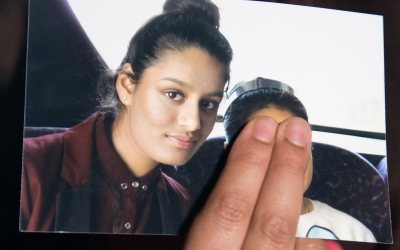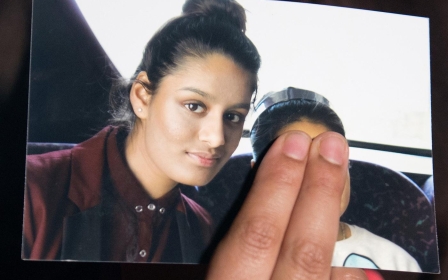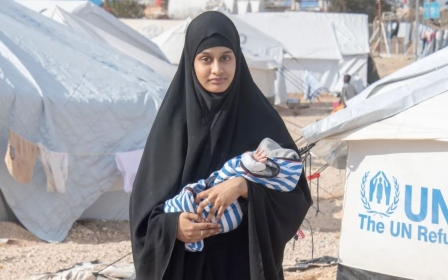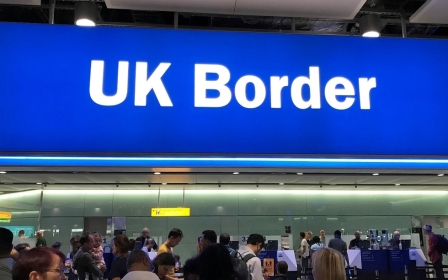Shamima Begum's citizenship stripping 'self inflicted' UK government lawyers claim
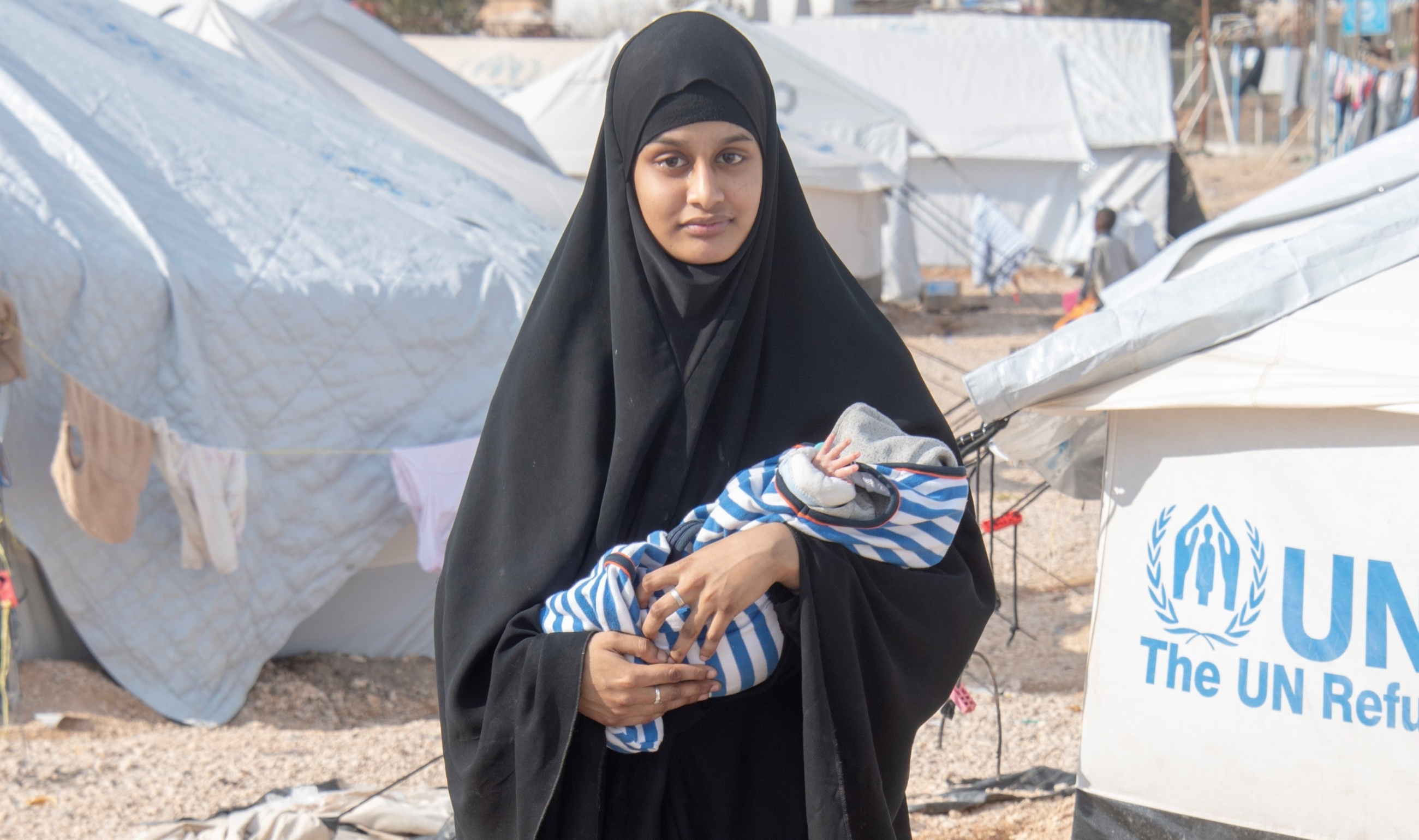
The UK government said its stripping of Shamima Begum's citizenship was "self-inflicted" after she decided to leave for Islamic State (IS) group territory as a schoolgirl, a court heard on Tuesday.
During the third day of a four-day hearing into her citizenship revocation, the UK government's lawyer, Jonathan Glasson, said it blamed Begum for her imprisonment in the al-Roj refugee camp, where she is currently being held.
Court papers released by the government said it stood by its decision to revoke Begum's citizenship on the grounds of national security.
Glasson in the papers noted that UK Home Secretary Priti Patel supported her predecessor's decision to strip Begum of her citizenship on grounds that she was "aligned with ISIL". ISIL is another acronym for IS.
He added in court papers that Begum was stuck in Syria and detained in a Kurdish-run camp as a "direct consequence of her own actions".
New MEE newsletter: Jerusalem Dispatch
Sign up to get the latest insights and analysis on Israel-Palestine, alongside Turkey Unpacked and other MEE newsletters
Begum's lawyer, Tom Hickman, questioned what Patel meant by the phrase "aligned with ISIL" and said the national security case against his client was "very general".
He told the court that his lawyers have had "very limited contact" with Begum and that the camp authorities had "prohibited" talking to her.
Commenting on Begum's inability to contact her lawyers, Glasson said in court: "Procedural problems that arose are out of the Home Secretary's control and a consequence of the appellant's conduct."
He added: "The appellant through her own choice is in an area of long-standing conflict. That is beyond the Secretary of state's control."
Glasson, however, noted that the situation in the al-Roj refugee camp where Begum is being held is "fluid and highly changeable".
The al-Roj refugee camp has been described as "wretched and squalid" by her lawyers.
Hickman noted concerns over the situation in al-Roj following Turkey's decision to launch an incursion into Kurdish-held areas where the refugee camp is located.
"We're not in a position with our client to communicate the case against her, and she is not in a position to do the same," Hickman told the court on the second day of the hearing.
"She is in detention and can’t have an effective appeal."
'Hanged' if sent back to Bangladesh
Begum absconded to IS-held Syria in 2015 with Kadiza Sultana and Amira Abase, two other schoolgirls who are both believed to be dead.
She was stripped of her citizenship in February 2019 after being found in a camp for IS detainees by a journalist for the Times newspaper.
While being held in captivity by Kurdish forces, her newborn son Jarrah died, three weeks after she gave birth to him. Prior to Jarrah's birth, Begum also gave birth to two other children in Syria who both also died.
Begum's case and the death of her son have cast scrutiny over the British government's policies towards UK nationals and their offspring stranded in Syria.
It is believed that the former home secretary, Sajid Javid, made his decision on the basis that Begum was eligible for Bangladeshi citizenship because of her parent's heritage.
Begum's lawyers told the court on Tuesday that there was no evidence that she had ever applied for Bangladeshi citizenship or visited the country.
Bangladesh's nationality laws say that any individual who has parents with Bangladeshi citizenship is also automatically entitled to citizenship.
The law, however, states that this entitlement expires if the individual has not claimed it before the age of 21.
Earlier this year, Bangladesh's foreign minister said that Begum could be "hanged" and face capital punishment if taken back to Bangladesh.
Speaking to ITV News, Bangladesh's minister of foreign affairs, Abul Kalam Abdul Momen, reaffirmed Dhaka's stance that Begum was not a Bangladeshi citizen.
Begum is among dozens of British nationals who have been stripped of citizenship because of security concerns surrounding the perceived threat posed by returnees from Syria.
Last year, judges at SIAC ruled that the British government had wrongly determined that two British men of Bangladeshi descent were Bangladeshi nationals and ordered their citizenship to be restored. The government is appealing those cases.
Middle East Eye delivers independent and unrivalled coverage and analysis of the Middle East, North Africa and beyond. To learn more about republishing this content and the associated fees, please fill out this form. More about MEE can be found here.


